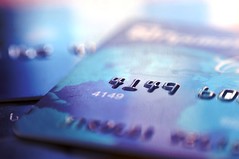With the recent increase in new fees at banks, and the backlash it has caused, people are starting to determine what the alternatives are. At the moment, there are still banks and credit unions that are maintaining their current fee structure without adding anything new. Many of those are also maintaining their “free” accounts. But, if the Durbin Amendment remains, it may be only a matter of time before they buckle under the costs and start removing “free” accounts and adding fees.
What then? It that happens, we might see a financial world where all debit cards have a monthly fee. We might see more annual fees on credit cards, and higher interest on credit cards. We might see more and more checking and savings accounts having a minimum deposit amount and/or a monthly fee.
 As a card-carrying member of the NGPAF (Not Gonna Pay Any Fees) club, that might just make me decide that I don’t want to use any of their services anymore. My depository institution might just have to become the coffee can in my backyard. Seriously, though. If all of those services become services with fees, we might see a pretty drastic increase in the usage of cash again. Many of us don’t use cash all that much. I know I don’t.
As a card-carrying member of the NGPAF (Not Gonna Pay Any Fees) club, that might just make me decide that I don’t want to use any of their services anymore. My depository institution might just have to become the coffee can in my backyard. Seriously, though. If all of those services become services with fees, we might see a pretty drastic increase in the usage of cash again. Many of us don’t use cash all that much. I know I don’t.
And what happens if we return to a cash economy? The banks get even less transaction fees. Their income drops because of it. And we all see what happens when their bottom line is threatened. More fees. It could send the banking industry into a never ending spiral of more and more fees until the only people who still use banks are the ones who don’t feel comfortable keeping thousands of dollars in a coffee can in the backyard.
Luckily for me, I belong to a credit union that isn’t likely to add any additional fees anytime soon. What about you? Do you belong to a Credit Union or Bank that hasn’t added fees recently? What if they did? How long do you think it will be before we have to choose to either pay fees or carry cash?
photo credit: flattop341

I started this blog to share what I know and what I was learning about personal finance. Along the way I’ve met and found many blogging friends. Please feel free to connect with me on the Beating Broke accounts: Twitter and Facebook.
You can also connect with me personally at Novelnaut, Thatedeguy, Shane Ede, and my personal Twitter.


